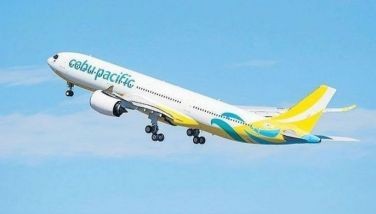Local car firms seek Japan assurance on CKD imports

October 7, 2005 | 12:00am
Local automakers have asked Philippine negotiators in the ongoing Japan-Philippines Economic Partnership Agreement (JPEPA) talks to ensure that Japan would ensure that Japanese automotive manufacturers would continue to assemble completely-knocked down (CKD) models in the Philippines.
According to Trade Undersecretary and concurrent Board of Investments (BOI) managing head Elmer C. Hernandez, local automotive manufacturers have asked JPEPA negotiators to ensure that in exchange for a phased reduction in automotive tariffs, Japan would ensure that Japanese automotive manufacturers would continue to assemble at least two CKD models each for their Philippine subsidiaries.
Including such a provision would ensure the continued viability of Philippine automotive manufacturing.
The local automotive industry fears that without such an assurance, their Japanese principals would shift completely to exporting completely built-up (CBU) units and terminate all CKD assembly operations especially once the tariffs on CBUs make it more financially viable to resort to such exports.
Without local CKD operations, there could be massive layoffs in the automotive industry.
CBUs imports only require the addition of tires and batteries, while CKD assembly still has plenty of local auto part content and requires skilled labor.
Hernandez also disclosed that the local automotive industry through their various associations such as the Chamber of Automotive Manufacturers of the Philippines (CAMPI) and the Philippine Automotive Federation, Inc. (PAFI) support the JPEPA negotiators in taking a stand that any agreed upon tariff reduction commitment would still be subject to review by 2009 specifically for vehicles with an engine displacement of three liters and below.
Hernandez said that the Philippine stance on automotive tariffs is similar to what Thailand had earlier secured in September this year under the Japan-Thailand Economic Partnership Agreement (JTEPA).
Thailand was able to secure an agreement whereby it would keep automotive tariff even beyond 2009.
Hernandez reiterated that the Philippines would not agree to an agreement that is less than what Thailand got.
According to Trade Undersecretary and concurrent Board of Investments (BOI) managing head Elmer C. Hernandez, local automotive manufacturers have asked JPEPA negotiators to ensure that in exchange for a phased reduction in automotive tariffs, Japan would ensure that Japanese automotive manufacturers would continue to assemble at least two CKD models each for their Philippine subsidiaries.
Including such a provision would ensure the continued viability of Philippine automotive manufacturing.
The local automotive industry fears that without such an assurance, their Japanese principals would shift completely to exporting completely built-up (CBU) units and terminate all CKD assembly operations especially once the tariffs on CBUs make it more financially viable to resort to such exports.
Without local CKD operations, there could be massive layoffs in the automotive industry.
CBUs imports only require the addition of tires and batteries, while CKD assembly still has plenty of local auto part content and requires skilled labor.
Hernandez also disclosed that the local automotive industry through their various associations such as the Chamber of Automotive Manufacturers of the Philippines (CAMPI) and the Philippine Automotive Federation, Inc. (PAFI) support the JPEPA negotiators in taking a stand that any agreed upon tariff reduction commitment would still be subject to review by 2009 specifically for vehicles with an engine displacement of three liters and below.
Hernandez said that the Philippine stance on automotive tariffs is similar to what Thailand had earlier secured in September this year under the Japan-Thailand Economic Partnership Agreement (JTEPA).
Thailand was able to secure an agreement whereby it would keep automotive tariff even beyond 2009.
Hernandez reiterated that the Philippines would not agree to an agreement that is less than what Thailand got.
BrandSpace Articles
<
>
- Latest
- Trending
Trending
Latest
Trending
Latest
Recommended






























